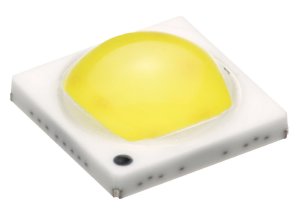Apr 13 2010
Seoul Semiconductor, a leading LED manufacturer, today announced that it would begin production in late 2010 on a new lamp capable of 150 lm/w. This astounding efficacy will surpass available DC LEDs.
 Seoul Semiconductor's 100 lm/W AC LED light source
Seoul Semiconductor's 100 lm/W AC LED light source
The company also announced that Acriche has begun mass-production of its patented technology AC-powered lamp, which recently achieved a luminous efficacy of 100 lm/w.
Production of the Acriche LED has become more important since the European Union began enforcing a ban on the sale of incandescent light bulbs of more than 100 watts last September and legislated against the use of existing inefficient electric light bulbs in all countries in the future.
Acriche LEDs are more efficient than halogen lamps, incandescent light bulbs and fluorescent lamps and they are the only light source that can be driven by a common alternating current power source without the need of an AC-DC converter.
Two of the world’s three largest lighting companies have already chosen the Acriche 100 lm/w for use in lighting applications. In addition, more than 100 companies are beginning to expand the applications.
“With the results of these developments, Seoul Semiconductor enhances its reputation as an environmentally friendly LED company by speeding up the development of Acriche products with high efficiency and high reliability required in the LED lighting market,” said Mr. S.M. Lee, Sr. Vice President of Seoul Semiconductor.